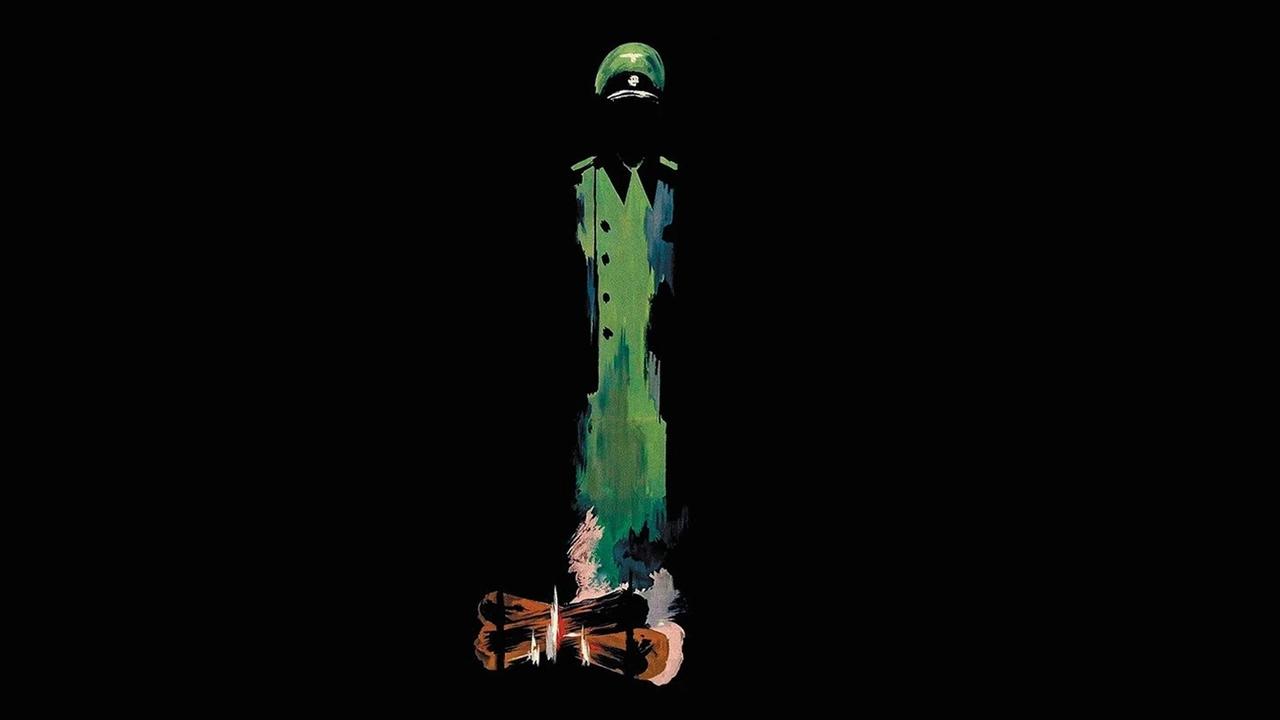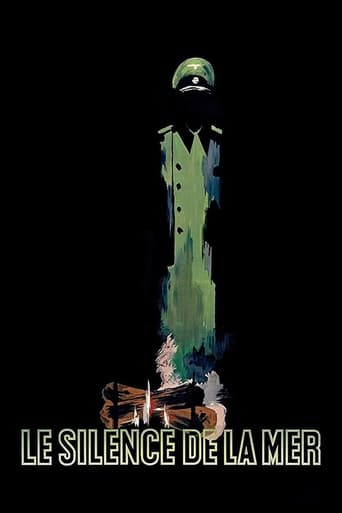Steinesongo
Too many fans seem to be blown away
StunnaKrypto
Self-important, over-dramatic, uninspired.
Dirtylogy
It's funny, it's tense, it features two great performances from two actors and the director expertly creates a web of odd tension where you actually don't know what is happening for the majority of the run time.
Lidia Draper
Great example of an old-fashioned, pure-at-heart escapist event movie that doesn't pretend to be anything that it's not and has boat loads of fun being its own ludicrous self.
yoshi_s_story
Irremediable antinomy between the wishes of the heart and the impositions of the human consensus: … ideals, values, duty, and pride: flags… flags to worship, flags to pay one's, everyone's, life to. Therefore: permanent, inescapable winter; snow.Were it not as stained with overflowing chauvinism, burdened with constant historical falsification of the same typical kind of French pictures on the matter (French «resistance» to German occupation has always been much more real a fact in French art than in reality, but this time this is widely amplified in untruth), as it is, it would be a nice motion picture, owing to source material by Vercors, Howard Vernon's play-acting and the aesthetically duly direction.
DexIMF
"Le Silence De La Mer" is a film based on the novel of the same name written by Jean Bruller which was published secretly in Nazi-occupied France. The film plays like a video-book of the novel as most of the story is told either through narration or monologues. The film's such patience-testing style is quickly suggested by its opening scene which plays as if it literally drops the viewer inside the novel.The film is told through two point of views. An old french man, who lives with his niece, and seems to be quite content with wealth and art. The other viewpoint is the Nazi soldier who stays in their house for a quite period of time. The key to delve into the former's mind is by his narration, and the latter's is by his monologues. It's an interesting dynamic which really shines and gets its point across over the course of time."Le Silence De La Mer" is Melville's debut feature, and it's fascinating how clear he is about the subject and style of the film. It's no wonder that his later films grew to be even more tightly constructed.The film opens with lines which suggest that the feature is in no way constructed to present as a solution to conflict between France and Germany, but I'm sure both Bruller and Melville, and the rest of us would have wondered, "..but what if?".
writers_reign
This fine film has a lot to answer for: when, in 1949, Jean-Pierre Melville shot it he did so with virtually no formal training in film making and, as a non-union member he employed other non-union members, specifically cinematographer Henri Decae, who went on to enjoy a distinguished career. Finally Melville did not shoot in studio conditions, filming the bulk of the action in author Vercors own home - the home in which, he had in fact written the novella which Melville adapted. The quality of the finished product is beyond dispute but the downside is that he gave the Cahiers crowd the idea that anyone could do it, thus indirectly Melville has to take the rap for foisting the untalented semi-amateur Godard on the world of film. That apart this is a stunning debut - Melville had previously shot only a short about a clown - with three (Howard Vernan, Nicole Stephane and Jean-Marie Robain) exceptional performances, all the more so because the latter two speak less than a dozen words between them. Later Melville returned to the Resistance with L'Armee des ombres, arguably the finest film about the Resistance ever made and taken together they make formidable viewing.
Prof-Hieronymos-Grost
In a small town in occupied France, the tranquil life of the occupants of a country house (an uncle and his niece) is disturbed when a new German officer, Lieutenant Werner Von Ebrennac is billeted and takes up residence in their home. Not wanting to be seen to be collaborating with the enemy they both agree not to let the foreign presence interfere with their everyday life and to this end they even refuse to acknowledge their new guest when he speaks to them. Von Ebrennac a musician and budding composer understands their stubbornness and each night he joins them in their living room and regales them with his stories, on topics such as his love of France, the influence of his father, the war and his passion for music, all of his thoughts and questions go unanswered by the uncle and his niece, he puffs on his pipe while she continues to knit, all the time never making eye contact with their unwanted guest. Privately they both seem to have a growing respect for Von Ebrennac,a learned, romantic and cultured man who imparts his knowledge of French literature with a vitality that can't help but enthuse the listener, he even resorts to wearing civilian clothes in order that his hosts feel more comfortable in his presence.After the fall of France to the occupying Nazi's, Jean Pierre Melville who fought in the famous battle of Dunkirk found himself demobbed from the French military and subsequently ended up in London where he tried to do his part for the French Resistance, it was there that his love of Cinema gave him his first inkling of what his first project would be, he wanted to adapt the infamous and iconic Resistance book, La Silence de la Mer by Vercors, After the war Melville approached Vercors looking for his permission to adapt his work, which was denied. Despite this setback Melville set out to make the film anyway, another problem that beset him was that he had no Cinematic training and in the highly regulated and unionised France this was going to be a sticking point if the film was going to be made, but his determination fuelled the project and soon Vercors was on board, after Melville made him an offer that the film would never be released unless it was accepted by an esteemed Resistance audience at a private screening and if it didn't compromise his book, of course the film was widely accepted with only one vote against. Melville strived for authenticity and even used Vercors' own home for the filming and also employed actors that had been in the Resistance.Jean-Marie Robain plays the Uncle and his voice is for the most part only heard in voice-over, both he and Nicole Stéphane's (the Niece) performances by their nature have to be very subdued and all emotion is shown with but the slightest of glances and hardly any movement. Vernon has nearly all the on screen speaking parts and the film is broken up into his ever more emotive musings on life that border on soliloquy and its his performance that holds together the film, when after a brief trip to Paris to meet some old friends, he returns devastated in the knowledge of the atrocities that are to happen and that have been happening, he must now admit to his hosts that his interpretations of his countries ideals have been erroneous. A sublime debut from Melville that influenced many of his fellow countrymen, like Bresson, Truffaut and Godard, with but the slightest hint of what direction his career would take, his gathering together of first timers succeeded in creating a film that bucked many of the filmic trends of the day and as such helps retain its freshness and power even today.

